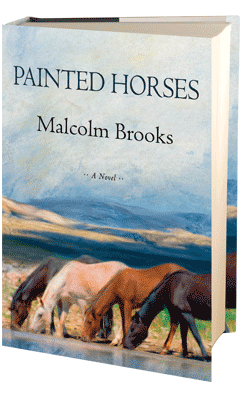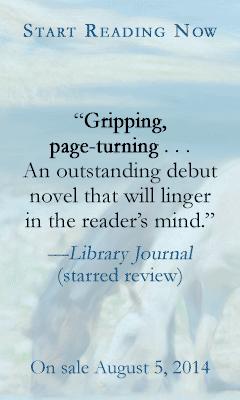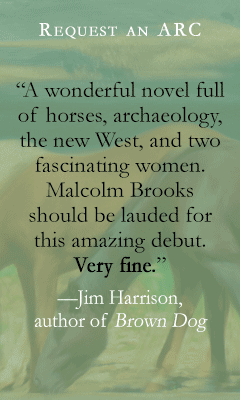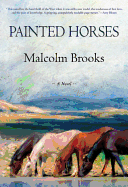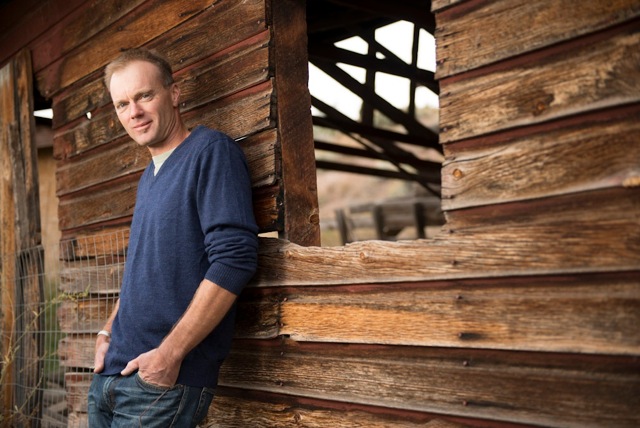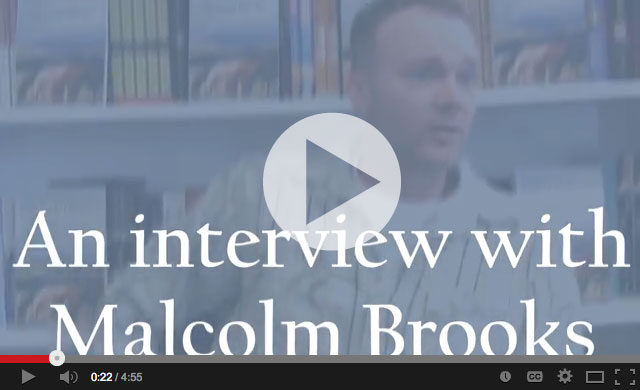Painted Horses
by Malcolm Brooks
This debut novel by Malcolm Brooks is a paean to the untamed majesty of his home state, Montana, that rings like the neigh of a horse running free in a canyon. With a startlingly clear view into a past when the American West was still wild, Brooks transports readers into a breathtaking, ruthless landscape. In the sagebrush and dust, an aristocratic young woman and an unrefined loner surrender not only to their passion for each other, but for the lost secrets of a wilderness under siege.
Aspiring archeologist Catherine Lemay faces the same challenges as any 1950s American woman with serious career goals. Her parents and fiancé don't understand why she would rather dig in the dirt than choose china patterns. Finding an employer who will even consider hiring a woman, let alone take one seriously, is next to impossible. When the Smithsonian Institution's River Basin Surveys department offers Catherine a position surveying a Montana canyon prior to the building of a hydroelectric dam, she takes her chances on the project, even though the dam contractor can't be bothered to remember her name. Allegedly hired because of her previous experience working on a dig in advance of construction, Catherine quickly realizes no one expects her to find anything in the presumably barren expanses of Montana, and no one wants her to. Her survey is a mere formality to placate the Crow Nation, who call the canyon sacred ground. Determined, stubborn Catherine takes the foregone conclusion of her failure as motivation to look harder. To help in her quest, she hires a headstrong young Crow woman named Miriam, as clever as Catherine but raised far from Catherine's privileged New England world in a place where "Farmers are their own carpenters. Their own mechanics, too." Through Miriam, whose eldest relative remembers the time of Custer, Catherine learns stories of the Crow and brushes with their culture at a celebration where she hears "a song of glory and mourning and revenge, with drums bashing like the blows of a club and voices like women hysterical with loss, other voices like souls wailing back, across a chasm that couldn't be crossed. She thought if hell were real and Custer had gone there, he doubtless heard something like this now, and always, and forever." However, her greatest revelation comes from the mysterious drifter John H, a horseman as comfortable in the Montana wilderness as the herds he tracks.
John H has his own reason for taking an interest in the canyon: a herd of wild horses, not mixed-blood mustangs, but pure-blooded Barbs whose lineage has remained unspoiled through the centuries. "These horses had crossed northern Africa with the Berbers, carried warring Moors into Spain. Into the New World with Cortez, to put the fear of pale gods into the Aztec. Eaten by the Apache. Adopted by the Comanche. John H had heard the stories. He had not seen their kind in all his years on the sage." From his youngest days, John has demonstrated an innate understanding of equine behavior and the ability to quickly earn an untamed horse's trust. A loner since his teen years, he rode the rails into Montana, where he trailed sheep with his Basque mentor, became a mustang hunter, and eventually found himself drafted into World War II. On foreign soil, John comes to truly understand the ancient history of man and horse, that "The grace of the horse caught the eye of the hunter, and the eye of the hunter saw its destiny.... To conquer the world with art." Now he lives in solitude, painting and dreaming horses, trying to wall out the world. His growing connection with Catherine gives him the rare chance to share his vision of the landscape he calls home, to describe the Montana autumn when "The smallest wind and the entire mountain lights up. The flicker of all of those leaves, shimmering at once. Thousands of leaves, all one color. Hundreds of different trees. All one tree."
Brooks's narrative sprawls across the New World and the Old, from the open frontier to a rarely seen sliver of World War II and to a lost Roman temple. History and progress jostle against one another in a constant battle for the future. Catherine began her tutelage in the struggle between preservation and progress while studying piano in London. Instead of attending music classes, she found herself drawn to an archeological dig uncovering the remains of the Roman city of Londinium, buried 20 feet below the modern city. The crew had to work quickly to excavate and document their findings before construction destroyed the site. In Montana, she finds that the Crow people have fought for years to stop their culture from becoming an artifact in the march toward modern convenience. John H already watched a way of life die when fences ended the open range, and his insight into the inner lives of horses speaks to a connection between nature and humanity that had already begun to vanish by the mid-20th century. Brooks offers contrasts between past and future, morals and convention, intermingled with a breathless love for one of America's last great wildernesses. All of the adventure and romance of the classic western novel awaits readers here, made even more vibrant by a tinge of bittersweet nostalgia. Glowing with spirit, Brooks's debut will entrance anyone who has ever felt the call of the West. --Jaclyn Fulwood



